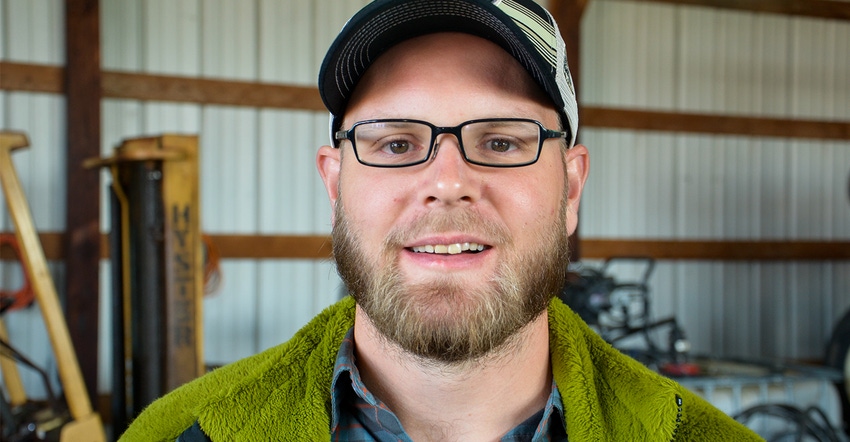
Jason Ackerson wasn’t on the program to speak at a field day on Ken Simpson’s farm near Morristown, Ind., just before harvest. Once farmers learned he was the newest addition to the Purdue Agronomy Department staff and focused on soil and soil structure, questions began popping up.
Ackerson came to Purdue University from Texas A&M University. “I became interested in soil research because of my interest in soil judging,” he says. Eventually, he will help Purdue Extension soils specialist Gary Steinhardt maintain Indiana high school and collegiate soils judging as premier programs in the country. Right now, he will focus on his research related to finding out how to characterize soils without digging pits or even taking actual soil cores.
Farmer questions
Here are Ackerson’s answers to questions he was asked at the field day.
I haven’t tried cover crops yet. Are there really benefits from growing cover crops? There is evidence that over the long term, cover crops will improve physical properties in the soil. The structure and integrity of the soil usually improve. That can help dry out wet soils in the spring. Of course, if it’s a dry spring, that might not be a plus.
If you are concerned about leaving better soil for the next generation, cover crops can definitely help you reach that goal. We’re often talking about benefits which we see over time.
How much time are you talking about before we see benefits? We could be talking three years or more. It’s true that waiting on benefits may not match up with your current funding cycle economically. It may take a while. On the other hand, the benefits can be worth waiting for.
What if I am on rented ground? If you only have a two- or three-year lease and use cover crops, you may not reap the full benefits of what cover crops can do if someone else takes over the farm later.
About the Author(s)
You May Also Like




